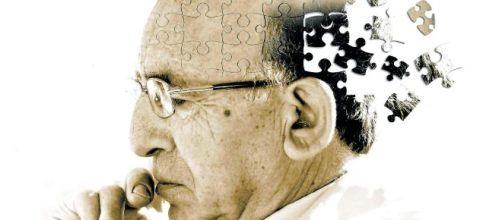Alzheimer's disease is perhaps the most recognized form of dementia and also the most feared. The disease makes patients start to lose their cognitive abilities and memory building prowess in the brain. While Alzheimer's mainly afflicts elderly people, early precautions can be taken earlier in life to delay or completely ditch the chances of Alzheimer's affliction. A new study has found just the way in which younger people may lower their chances of suffering from the disorder in later life.
Uninterrupted sleep may lower chances of Alzheimer's disease
A new study conducted by the researchers from Wheaton College discovered that Breathing Problems which affected the sleep pattern of a person could also increase the chances of the markers related to Alzheimer's disease showing up in these people. Researchers also used external aids such as dental appliances and CPAP machines, which force airways of a person to stay open while sleeping. These devices when used in the people who experienced difficulty breathing while sleeping, significantly lowered the chances of early onset of dementia.
People who experienced difficulty breathing during sleep mainly went through hypopnea, which is under breathing or getting lesser oxygen than is ideal.
Some people also experienced apnea, which is the complete blockage of the nasal pathways. The most common form of sleep breathing disorder is known as Obstructive Sleep Apnea or OSA. The Alzheimer's Association claimed that the OSA was found in almost three out of every ten men and one out of every five women.
In Obstructive Sleep Apnea, some portions of the airways are closed down, while the remaining portion remains open. People with OSA try to breathe during their sleep but the phenomenon keeps interrupting the sleep. This interruption can occur from 50 to 60 times in one single night. Such interrupted sleep can lead to the formation of the dementia markers
How the research was conducted
Two different processes were followed for conducting the study.
In the first one, it was discovered that 516 cognitively normal adults aged between 71 and 78 that suffered from sleep apnea underwent a considerable amount of beta-amyloids over a three year period. Beta-amyloid is believed to be the material which gets lodged in the brain and cause Alzheimer's and other such disorders. Earlier research had shown that a restful sleep resulted in the disintegration of all the beta amyloid plaques.
A second study was also conducted where the effects of sleep apnea were noted for people who suffered from mild cognitive disorders. Researchers now believe that the cleanup of the amyloid compound takes place only when a person is in their deepest sleep. Thus a good night’s sleep will do wonders for a person’s mental and cognitive acuity.


